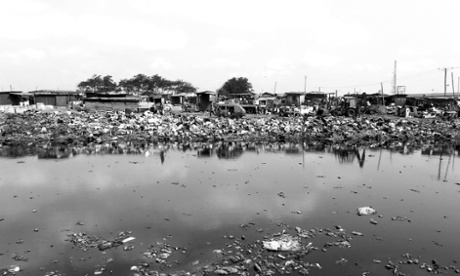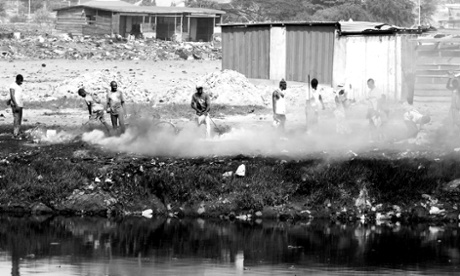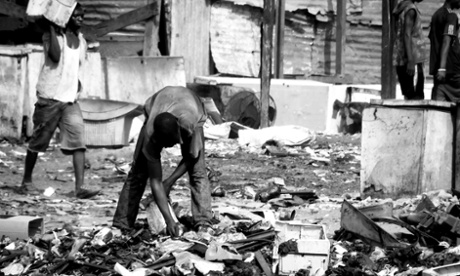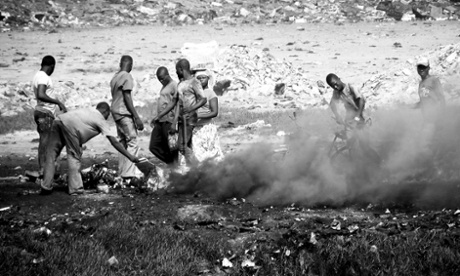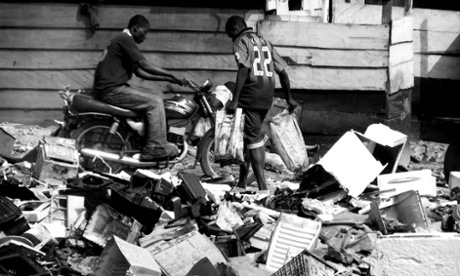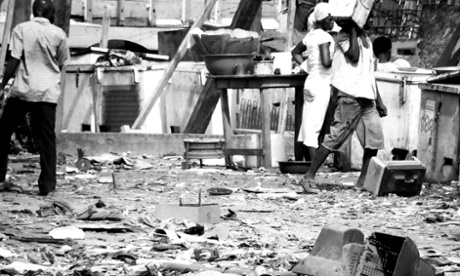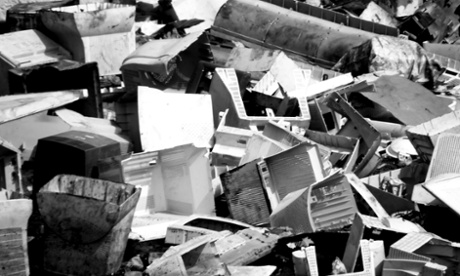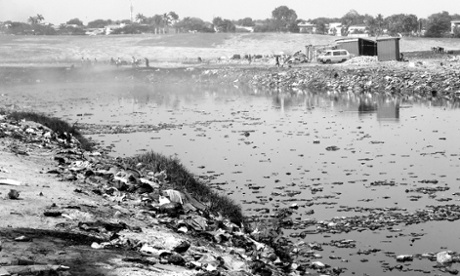Flame retardants used in plastics in a wide range of electronic products is putting the health of children exposed to them at risk, according to a new report (pdf).
Brominated flame-retarding chemicals have been associated with lower mental, psychomotor and IQ development, poorer attention spans and decreases in memory and processing speed, according to the peer-reviewed study by the campaign group CHEM Trust.
“The brain development of future generations is at stake,” says Dr Michael Warhurst, CHEM Trust’s director. “We need EU regulators to phase out groups of chemicals of concern, rather than slowly restricting one chemical at a time. We cannot continue to gamble with our children’s health.”
The issue poses questions about recycled products that have been imported from countries with less robust recycling rules, such as China.
In 2014 China generated 3.2bn tonnes of industrial solid waste, of which 2bn tonnes was recycled, recovered, incinerated or reused, according to a study in Nature. But concerns about its waste treatment standards were heightened by the discovery of some of the highest concentrations of PBDE chemicals (a group of brominated flame retardants) ever recorded in the food chain near the country’s e-waste recycling plants in the same year.
A trend towards using plastic parts instead of metals in electrical and electronic goods is also causing a headache for the circular economy because so many plastics use toxic flame retardants.
One 2015 study (pdf) found significant traces of two potentially hormone-altering brominated flame retardants in 43% of 21 children’s toys surveyed, including toy robots, hockey sticks and finger skateboards. The substances are often found in the recycled plastics first used in electronic products.
Last month the European commission moved to restrict the use of one such substance, DecaBDE, but also allowed exemptions for spare car parts and aviation, and longer deferral periods for recycled materials containing the substance.
A subsequent European Environmental Bureau report called on the commission to limit the amount of hazardous materials in circulation and ensure the appropriate decontamination of hazardous waste before recovery.
At high doses persistent organic pollutants (POPs) such as DecaBDE may have carcinogenic (pdf) effects and environmentalists have protested to the commission (pdf) about their potential reuse. POPs can accumulate in living bodies and be transported far from their places of origin by atmospheric circulation and ocean currents.
The Arctic, for example, has experienced a huge build up of POPs even though they are not produced there, with Innuit peoples in Nunavut recording extraordinarily high chemical concentrations in their bloodstreams.
That poses concerns for health professionals but also for European businesses. Under EU law companies must remove and send listed POPs to high-temperature incineration plants where they can be turned into salts and waters. However, this removes a plastic waste stream from revenue-generating recycling materials, making it more costly and difficult to meet recycling obligations.
Plastics in electrical goods may be safely incinerated en masse when disposed of by responsible hazardous-waste disposal centres.
But environmentalists argue that EU regulations allow the collection and recycling of material containing dangerously high levels of POPs, while information about chemical toxicity is not properly passed along the whole product lifecycle.
The substances may still be found in imported products that have been recycled in countries like China, according to Professor Olaf Wirth of the Okopol Institute, who has advised the German federal environment agency.
“Many big name toy-makers produce in China and don’t have a problem as they tell the producers what to do and what is forbidden in the EU,” says Wirth. “If you just buy something on the market because you like the design then you may bring products into the EU that contain substances that are not allowed.”
Wirth is sympathetic to environmentalists and firefighters who question the need for flame retardants in most electrical products, although national regulations often require them.
Philip Morton, the outgoing CEO of Repic, the UK’s largest e-waste producer compliance scheme, told the Guardian that handling POPs is “the next big thing” for manufacturers.
“Whereas steel is just steel, plastic is not just plastic,” says Morton. “There are a number of different grades and additives that should be on everyone’s radar. More things will soon start appearing on the ‘POP list’ and that has the potential to become very difficult [for industry].”
The commission is expected to bring forward an amendment of its POP regulation later this year, to update producer obligations. Meanwhile designers are in an ongoing race to turn out product models that are well labelled, easily dissembled and simple to recycle.
“Going forward there will have to be stronger connections between manufacturers and the designers of their products as it’s a closed loop and producers putting these products on the market will ultimately pay for recycling at the end of a product’s life,” says Morton.
Sign up to be a Guardian Sustainable Business member and get more stories like this direct to your inbox every week. You can also follow us on Twitter.
Warnings over children"s health as recycled e-waste comes back as plastic toys
